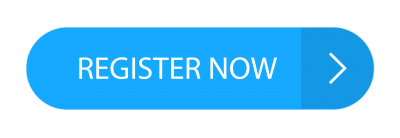Boosting Students’ Self-development though Learning Community
Abstract
Learning is a social process that thrives in collaborative, inclusive, and supportive environments. This research explores the opinions of students who were being part of a learning community. A qualitative approach with structured interviews was carried out to find out the opinions of 5 students about their reasons for joining the learning community, and what they gained count of self-development for their present academic reason and the future. The results of this research indicated that the main reason the students participated to the learning community was because of teamwork, interest, and goals. In terms of self-development, they feel relationships, increasing skills, academic, better self-esteem and having more network. This research concludes that the learning community has contributed to academic and non-academic aspects for the students who determined to participate to the learning community.
Keywords
Full Text:
PDFReferences
Antinluoma, M., Ilomäki, L., & Toom, A. (2022). The involvement of teaching assistants in professional learning communities. Cogent Education, 9(1). https://doi.org/10.1080/2331186X.2022.2145811
Asemota, H. E. (2015). Language, the individual, society and culture constitute a unique approach, congenial for language teachers. British Journal of English Linguistics, 3(3).
Brouwer, J., de Matos Fernandes, C. A., Steglich, C. E. G., Jansen, E. P. W. A., Hofman, W. H. A., & Flache, A. (2022). The development of peer networks and academic performance in learning communities in higher education. Learning and Instruction, 80. https://doi.org/10.1016/j.learninstruc.2022.101603
Brown, E. J., Dunlop, L., & Scally, J. (2020). ‘It’s about not achieving the outcomes that you necessarily expected’: Non-formal learning in higher education. Teaching in Higher Education, 25(1). https://doi.org/10.1080/13562517.2018.1541880
Cheung, D., & Lai, E. (2013). The effects of classroom teaching on students’ self-efficacy for personal development. British Journal of Guidance and Counselling, 41(2). https://doi.org/10.1080/03069885.2012.721126
Dingyloudi, F., & Strijbos, J. W. (2020). Community Representations in Learning Communities. Scandinavian Journal of Educational Research, 64(7). https://doi.org/10.1080/00313831.2019.1640788
Dziubinski, J. P. (2014). Does feeling part of a learning community help students to do well in their A-levels? Exploring teacher–student relationships. Research in Post-Compulsory Education, 19(4). https://doi.org/10.1080/13596748.2014.955641
Dzul, H., Hussin, Z., & Sulaiman, A. M. (2023). THE EFFECT OF PROFESSIONAL LEARNING COMMUNITY MEDIATORS ON TRUST AND SELF-EFFICACY OF ISLAMIC EDUCATION TEACHERS IN MALAYSIA. Malaysian Journal of Learning and Instruction, 20(1). https://doi.org/10.32890/mjli2023.20.1.1
Fatimah, S., Al Ayubi, S., & Irawati, T. N. (2020). The Collaboration of Mind Mapping Learning With Modeling The Way To Improve Student Learning Outcomes. Jurnal Axioma : Jurnal Matematika dan Pembelajaran, 5(2). https://doi.org/10.36835/axi.v5i2.741
Francesca, G., Marco, D. M., Angelo, C., & Giuseppina, P. (2010). Discovering The Hidden Dynamics Of Learning Communities. Journal of Information Technology Case and Application Research, 12(3). https://doi.org/10.1080/15228053.2010.10856188
González Hernández, W. (2023). The Teaching-Learning Process or the Teaching Process and the Learning Process. Culture and Psychology, 29(1). https://doi.org/10.1177/1354067X221097610
Gubrium, J., & Holstein, J. (2012). Handbook of Interview Research. In Handbook of Interview Research. https://doi.org/10.4135/9781412973588
Herrera, H., Brown, D., & Portlock, J. (2015). Foundation degree learning: an educational journey of personal development. Journal of Further and Higher Education, 39(6). https://doi.org/10.1080/0309877X.2013.869562
Hod, Y., Basil-Shachar, J., & Sagy, O. (2018). The role of productive social failure in fostering creative collaboration: A grounded study exploring a classroom learning community. Thinking Skills and Creativity, 30. https://doi.org/10.1016/j.tsc.2018.03.006
Hur, W. M., Moon, T. W., & Lee, J. H. (2021). The effect of self-efficacy on job performance through creativity: the moderating roles of customer incivility and service scripts. Asia Pacific Journal of Marketing and Logistics, 33(3). https://doi.org/10.1108/APJML-03-2019-0138
Ivaniuk, H., Venhlovska, O., Antypin, Y., & Vovchok, Y. (2020). Self-Development as a Factor in the Professional Growth of Future Teachers. Journal of History Culture and Art Research, 9(4). https://doi.org/10.7596/taksad.v9i4.2873
Kothari, C. (2004). Research methodology: methods and techniques. In New Age International. https://doi.org/http://196.29.172.66:8080/jspui/bitstream/123456789/2574/1/Research%20Methodology.pdf
Lindenwood University. (2024). BENEFITS OF LEARNING COMMUNITIES. Lindenwood University. https://www.lindenwood.edu/academics/support-resources/first-year-programs/learning-communities/learning-community-benefits/
Lyz, N., Prima, A., & Opryshko, A. (2020). The role of students’ life course conception in their self-development. International Journal of Cognitive Research in Science, Engineering and Education, 8(1). https://doi.org/10.5937/IJCRSEE2001037L
McKinley, J., & Rose, H. (2019). The routledge handbook of research methods in applied linguistics. In The Routledge Handbook of Research Methods in Applied Linguistics. https://doi.org/10.4324/9780367824471
Sari, F. P., Mahmood, D. D., Subroto, S. H., Nursuhud, P. I., & Prasetyo, H. (2022). Development of physic learning video properties of light with colaboration teacher and student as learning media in new normal era. Gravity: Jurnal Ilmiah Penelitian dan Pembelajaran Fisika, 08(01).
Sekar, R. Y., Uin, N. K., & Makassar, A. (2020). KOMUNITAS BELAJAR SEBAGAI SARANA BELAJAR DAN PENGEMBANGAN DIRI. Indonesian Journal of Adult and Community Education, 2(1).
Snyder, H. (2019). Literature review as a research methodology: An overview and guidelines. Journal of Business Research, 104. https://doi.org/10.1016/j.jbusres.2019.07.039
Soo Boon, N. (2021). Developing a Hybrid Learning Curriculum Framework for Schools. 45, 1–27. https://unesdoc.unesco.org/ark:/48223/pf0000377482
Supervía, P. U., Bordás, C. S., Robres, A. Q., Blasco, R. L., & Cosculluela, C. L. (2023). Empathy, self-esteem and satisfaction with life in adolescent. Children and Youth Services Review, 144. https://doi.org/10.1016/j.childyouth.2022.106755
Susanto, A, Ratnasari, S, L., Susanti, E, N., Megah, S, I., Wilany, E., & Yuliani, S. (2024). Beliefs of English Language Instruction by Indonesian Elementary School Teachers: Exploring the Influence of Environment and Educational Background. Al-Islah Junal Pendidikan, 6(1), 1–13. https://doi.org/https://doi.org/10.35445/alishlah.v16i1.4434
Susanto, Alpino, Khairiyah, K. Y., Dzirrusydi, Z., & Sugiharti, S. (2022). Online English language learning among tertiary students. Journal of Education and Learning (EduLearn), 16(2), 273–283. https://doi.org/10.11591/edulearn.v16i2.20457
Susanto, Alpino, Nuwrun, S., Tegor, T., Azhari, W., Megah, M., & Yuliani, S. (2022). Busuu as Online Learning Platform on Vocabulary Learning Motivation and Vocabulary Achievement among Students. AL-ISHLAH: Jurnal Pendidikan, 14(1), 249–260. https://doi.org/10.35445/alishlah.v14i1.1295
Susanto, Alpino, Oktavia, Y., Yuliani, S., Rahayu, P., Haryati, & Tegor. (2020). English lecturers’ beliefs and practices in vocabulary learning. Studies in English Language and Education. https://doi.org/10.24815/siele.v7i2.16970
UNIL. (2017). UIL annual report 2017. UNESCO Institute for Lifelong Learning (UIL): annual report 2017.
Zhu, E., & Baylen, D. M. (2005). From learning community to community learning: Pedagogy, technology and interactivity. Educational Media International, 42(3). https://doi.org/10.1080/09523980500161395








.png)